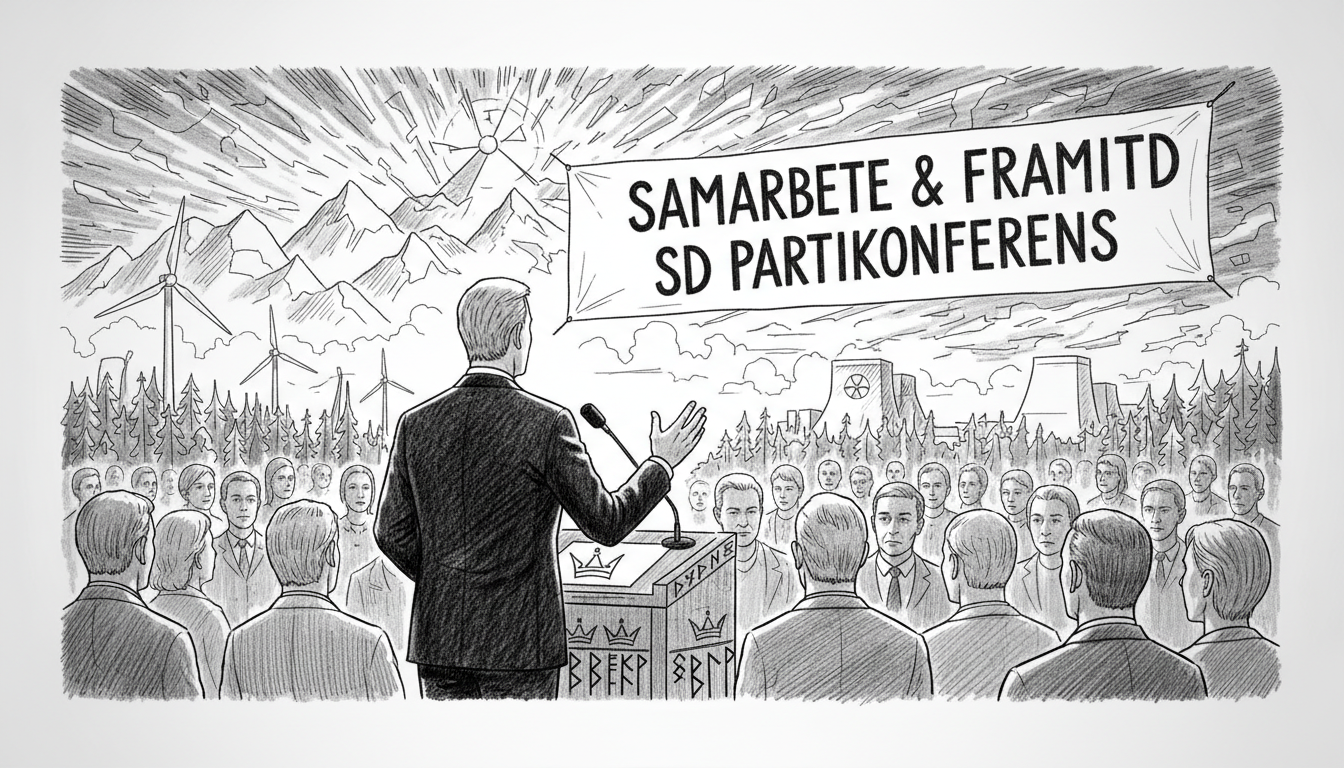Swedish Prime Minister Ulf Kristersson made his first appearance at the Sweden Democrats' national conference this weekend. He delivered a speech thanking the party for their cooperation in government. The visit marks a significant moment in Swedish politics as the Moderate Party leader directly engages with the nationalist party's grassroots.
Kristersson expressed gratitude for the three-year collaboration between his government and the Sweden Democrats. He described the pace of reforms as faster than he thought possible. The Prime Minister specifically mentioned several policy areas where he believes their cooperation has produced results. These include reducing gun violence, managing inflation, and advancing nuclear power projects.
This political partnership, known as the Tidö Agreement, represents a major shift in Swedish politics. For decades, mainstream parties avoided formal cooperation with the Sweden Democrats. The agreement has enabled Kristersson's minority government to pass legislation despite not holding a parliamentary majority. The arrangement gives the Sweden Democrats substantial influence over government policy without holding ministerial positions.
Swedish political analysts note this public appearance signals the relationship is becoming more normalized. The Prime Minister's presence at the party conference suggests both parties see continued value in their arrangement. The cooperation has faced criticism from opposition parties who argue it has moved Swedish politics rightward on immigration and law enforcement issues.
Kristersson's speech emphasized future collaboration, mentioning coming electoral periods. This indicates the governing parties anticipate maintaining their partnership beyond the current term. The reference to future mandates suggests both parties see this as a long-term political strategy rather than a temporary arrangement.
The Sweden Democrats have grown from a fringe party to Sweden's second-largest political force. Their rise has fundamentally reshaped the country's political landscape. Mainstream right-wing parties now depend on their support to govern, giving them unprecedented influence over national policy direction.
International observers watch these developments closely as Sweden represents one of Europe's most stable social democracies. The changing political alliances reflect broader trends seen across Scandinavia where immigration-skeptic parties have gained mainstream acceptance. Similar patterns have emerged in Finland and Denmark where center-right parties collaborate with nationalist movements.
What does this mean for Sweden's future direction? The continued cooperation suggests policies on immigration, crime, and energy will maintain their current course. The government appears committed to stricter migration rules and expanded nuclear power, both Sweden Democrat priorities. The political landscape has clearly shifted from the traditional left-right divide to new alliances based on cultural issues.
Swedish voters will next test this political configuration in the 2026 general election. Both governing parties hope to demonstrate their cooperation has produced tangible results that appeal to voters. The opposition argues the partnership has moved Sweden away from its traditional consensus-based politics toward more polarized positions.

